5th Floor, West Tower, World Financial Centre
1 Dong San Huan Middle Road
Chaoyang District, Beijing 100020, China
Tel: +86 10 5081 5880

November 28, 2025
Diplomat Kishore Mahbubani Speaks at SAIF Distinguished Speaker Series
On November 6, Kishore Mahbubani—Founding Dean of the Lee Kuan Yew School of Public Policy at the National University of Singapore, former Singaporean Ambassador to the United Nations, and former President of the UN Security Council—delivered a keynote address at the SAIF Distinguished Speaker Series at the SAIF Greater Hongqiao Center. Under the theme "Navigating Uncertainty: Building a Shared Future Between China and the World," Mahbubani offered insights on the current global landscape and China's evolving role, engaging in substantive exchanges with SAIF faculty, students, and alumni. The event was jointly organized by SAIF and the SAIF Hong Kong Foundation, with special support from CITIC Publishing Group and CITIC Academy. In attendance were Xinan Zhang, Secretary of the CPC SAIF Committee, Tenured Professor of SJTU, and President of the Shanghai Behavioral Science Association; Hong Yan, Chair Professor of Finance, Deputy Dean, and GES Program Academic Director; and Nan Li, Term Associate Professor at SAIF and Deputy Director of the SJTU Institute of Securities & Finance. The event attracted over 400 attendees from diverse sectors. In his opening address, Professor Zhang outlined SAIF's founding mission to advance Shanghai's position as an international financial center and establish global leadership in finance research and education. He noted that amid growing uncertainty, SAIF has intensified its focus on Innovation Finance, Digital Finance, and Sustainable Finance—areas aligned with national financial policy priorities while driving innovation in talent development, research, and industry-academia collaboration. The SAIF Distinguished Speaker Series, he emphasized, serves as a vital platform for fostering dialogue and generating insight during times of global uncertainty. Drawing on decades of diplomatic experience, Mahbubani identified three profound structural shifts reshaping the world order: first, the world is shrinking at a dramatic rate; second, there is a massive shift of power from West to East, particularly in economic terms; and third, we are transitioning from a mono-civilization world to a multi-civilization world. These converging transitions, he argued, lie at the root of contemporary instability. Mahbubani stressed that shared global challenges—from climate change to pandemics—demand renewed commitment to multilateral governance. "Our world is shrinking," he observed. "Over 8 billion people inhabit more than 190 countries, much like passengers sharing one ship. We must safeguard it." While multilateralism is increasingly essential, some Western states, he noted, remain reluctant to relinquish privilege in international institutions. Mahbubani expressed strong support for China's Global Governance Initiative as a timely contribution, urging the international community to collaborate in building a shared future. In a subsequent dialogue, Mahbubani and Professor Yan exchanged views on global governance reform, major-power competition, the rise of regional forces, and the international expansion of Chinese enterprises. On global governance reform, Mahbubani noted growing disconnects between economic weight and institutional influence, underscoring the need for structural reform and sustained dialogue. Regarding regional forces, Mahbubani described ASEAN, with nearly 700 million people, as a "postcard from the future"—a model of peaceful coexistence among diverse cultures and religions, offering lessons for inclusive global governance. For Chinese enterprises expanding abroad, Mahbubani advised deeper local engagement, cultural sensitivity, and active participation in platforms such as the China International Import Expo to foster mutual understanding and achieve win-win outcomes. Mahbubani further encouraged Chinese entrepreneurs and youth to engage globally, witness firsthand China's impact abroad, and consider how to refine the country's narrative on the international stage. In his closing remarks, Professor Yan noted that the dialogue highlighted both the urgency and complexity of global governance reform, offering a strategic framework and practical wisdom for navigating an uncertain world. He emphasized that China should advocate for reforms in the global governance framework with greater openness and inclusiveness, upholding its responsibility as a major nation in building a global community with a shared future.
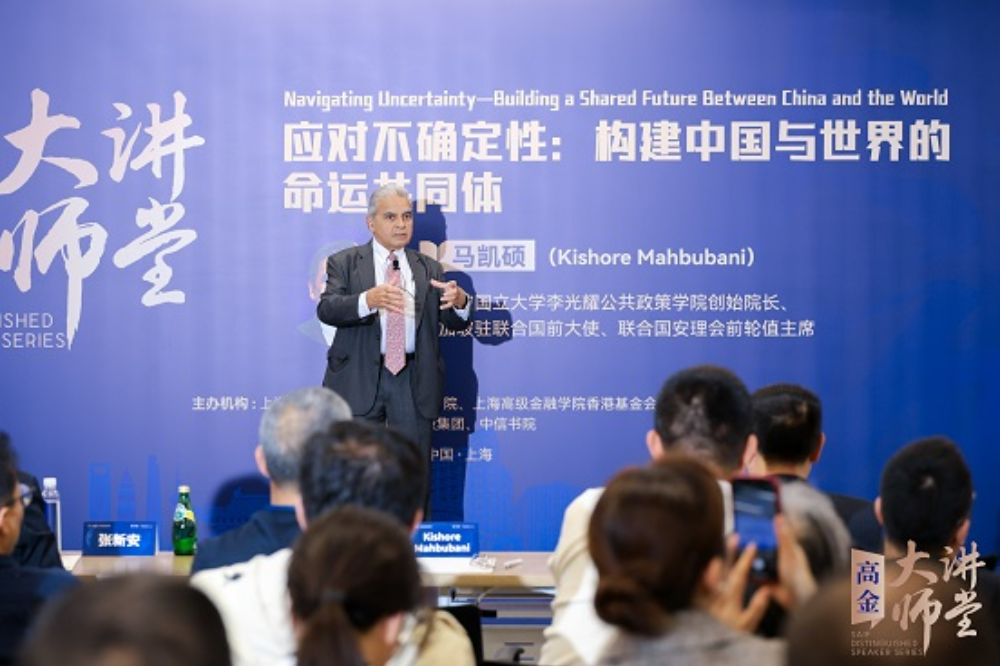
November 28, 2025
EDHEC Associate Dean Richard Perrin Visits SAIF
On November 4, Richard Perrin, Associate Dean for International Relations at EDHEC Business School, and Sisi Pan, Head of China Operations, visited SAIF. Deputy Dean Hong Yan welcomed the delegation and held discussions on deepening bilateral cooperation.
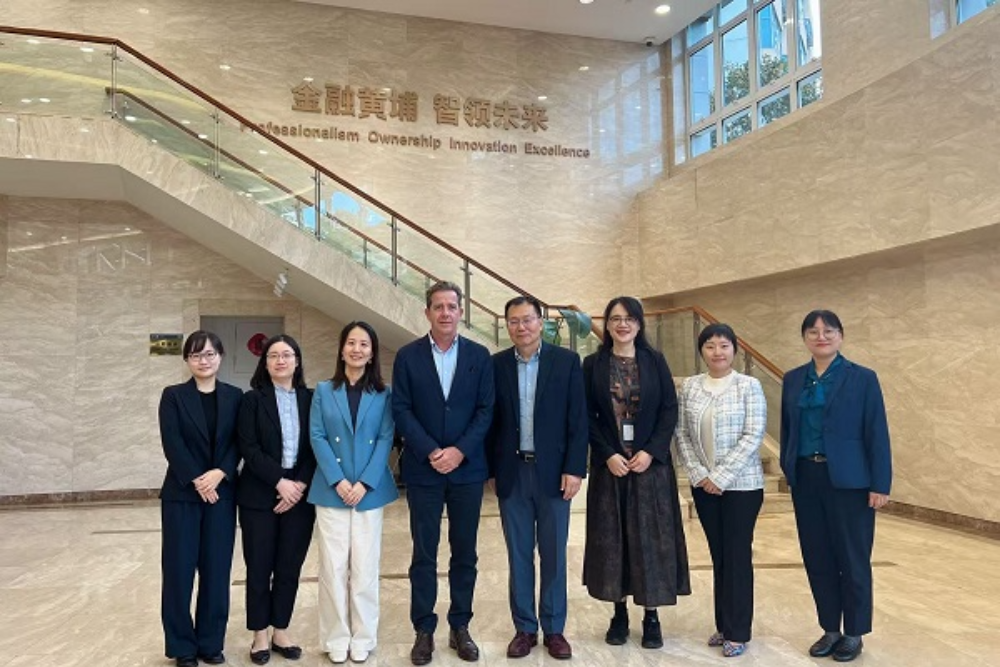
November 26, 2025
AACSB President and CEO Lily Bi Visits SAIF
On October 27, Lily Bi, President and CEO of The Association to Advance Collegiate Schools of Business (AACSB), led a delegation to the Shanghai Advanced Institute of Finance (SAIF) at Shanghai Jiao Tong University. The visit centered on enhancing busines
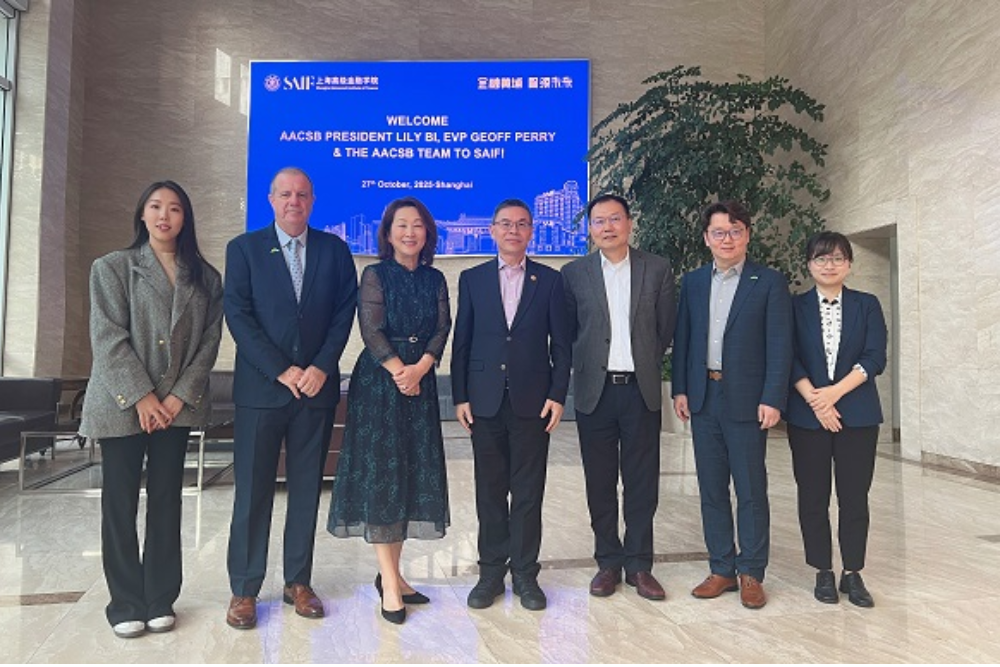
October 22, 2025
SAIF Organizes Overseas Study Module at Universitas Indonesia
SAIF successfully conducted a four-day overseas study module at Universitas Indonesia from September 30 to October 3, 2025. Organized under the guidance of the SJTU Asia-Pacific Graduate Institute (SJTU-APGI) and in partnership with the Faculty of Economi
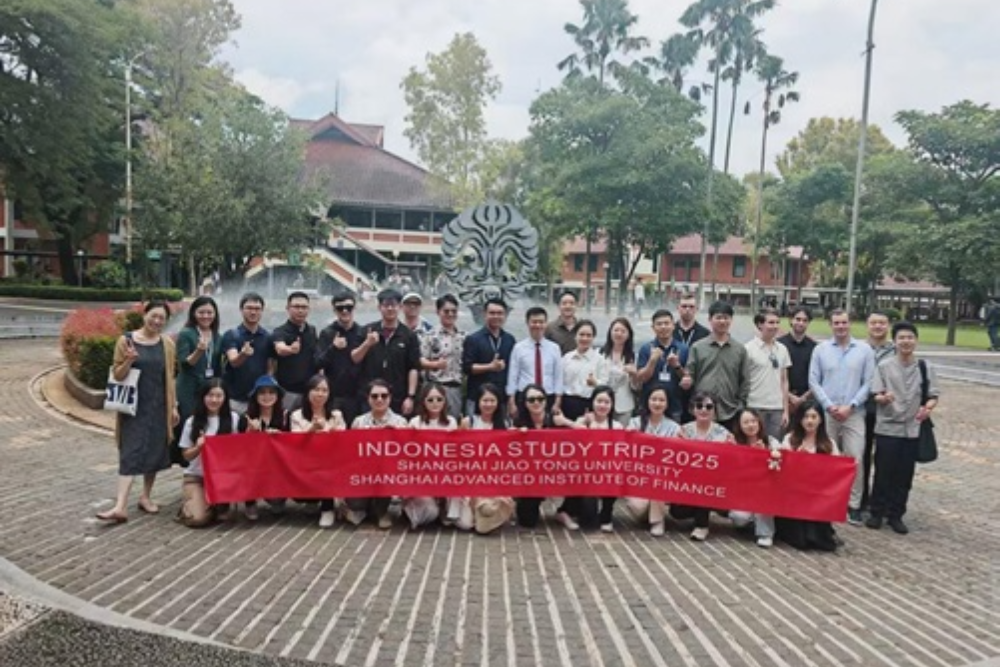
October 22, 2025
SAIF Welcomes New Students at 2025 Opening Ceremony
The Shanghai Advanced Institute of Finance (SAIF) held its 2025 Opening Ceremony on September 19 at Wenzhi Hall, at the Xuhui Campus of Shanghai Jiao Tong University (SJTU). The event welcomed nearly 600 new students from the MF, MBA, EMBA, and Ph.D. prog
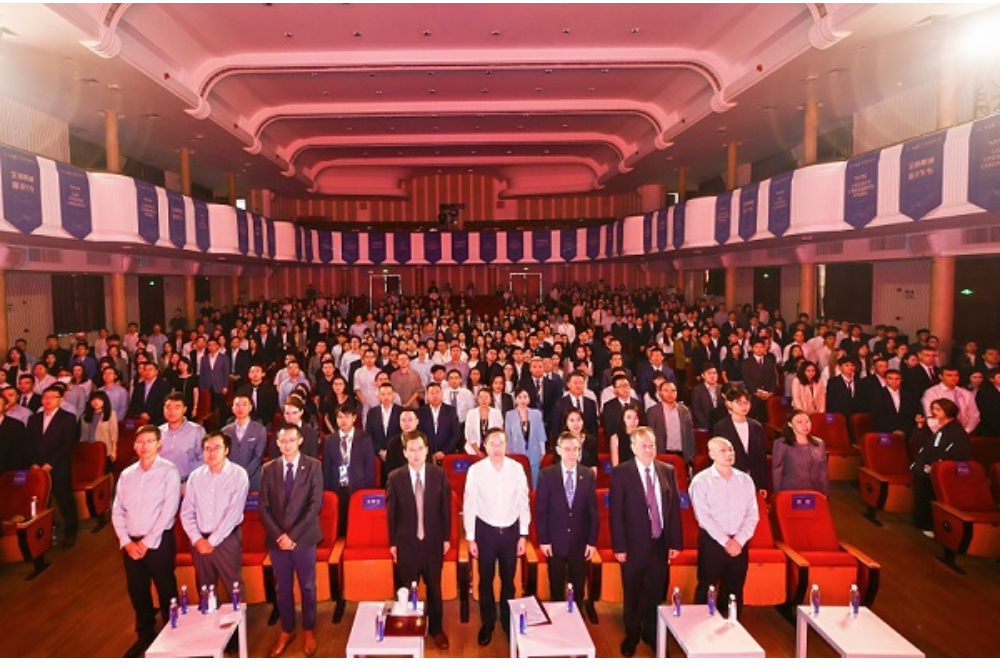
October 20, 2025
SAIF Professors Jun Pan and Feng Li Named Among World's Top 2% Scientists
Recently, the "World's Top 2% Scientists 2025" list was jointly released by Stanford University and Elsevier, an authoritative academic publisher. Professor Jun Pan, Professor of Finance and Chair Professor at SAIF, was selected for the "Career-long Impac
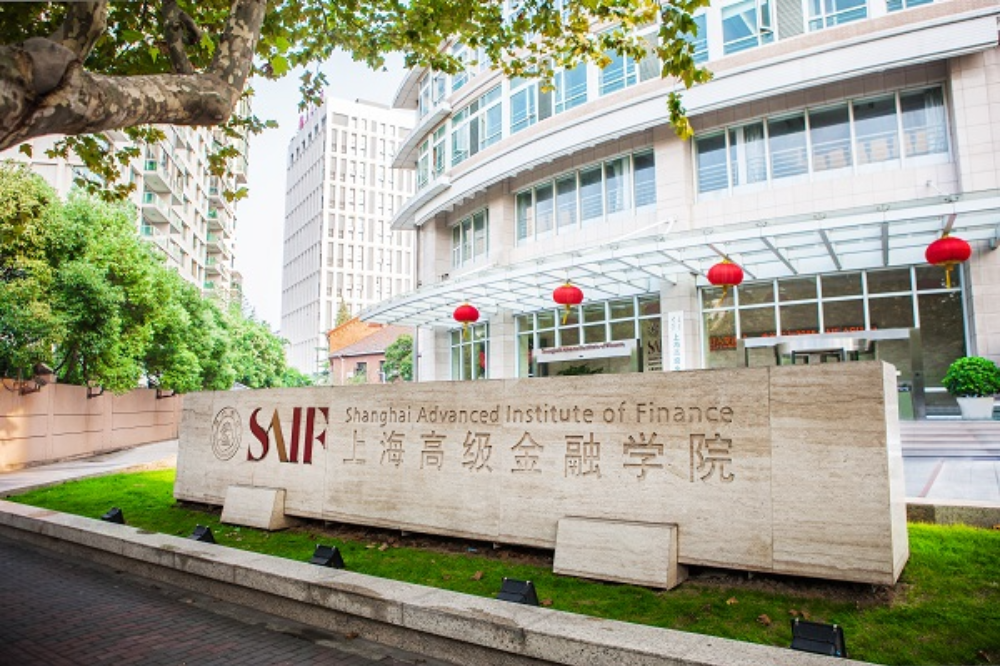
October 19, 2025
2025 Sustainability Global Leaders Conference Opens with SAIF as Exclusive Acade ...
On October 16, the 2025 Sustainability Global Leaders Conference commenced in Shanghai, with the Shanghai Advanced Institute of Finance (SAIF) serving as the exclusive academic partner.
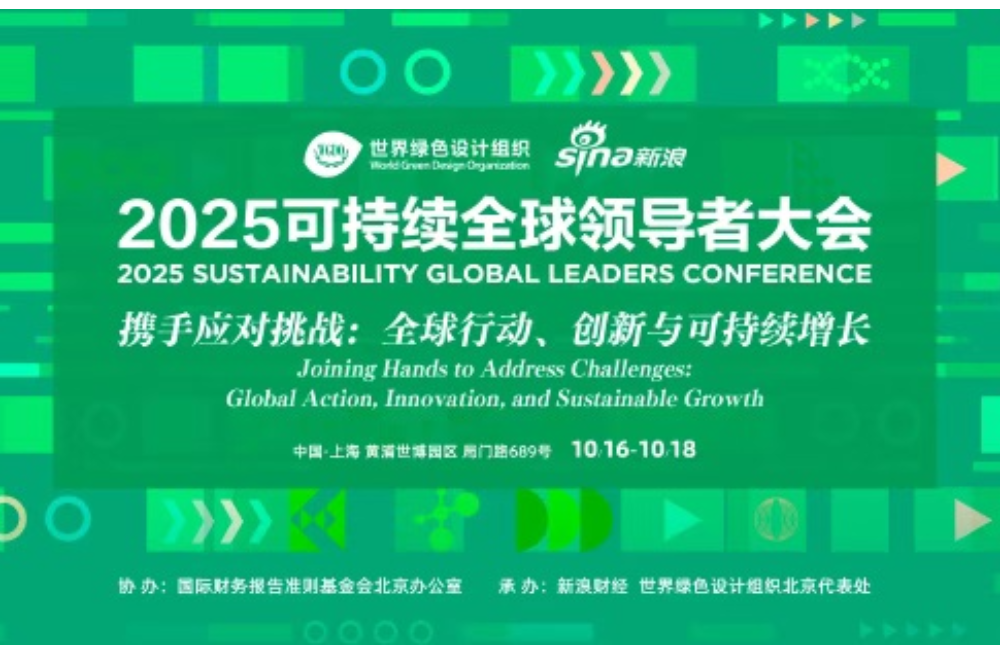
September 26, 2025
Shanghai-Hong Kong Youth Development Program Successfully Concluded
The Shanghai-Hong Kong Youth Development Program, hosted by the SAIF Hong Kong Foundation and organized by SAIF, recently concluded in Shanghai with outstanding participation from over 40 students from The Hong Kong Polytechnic University and other renown
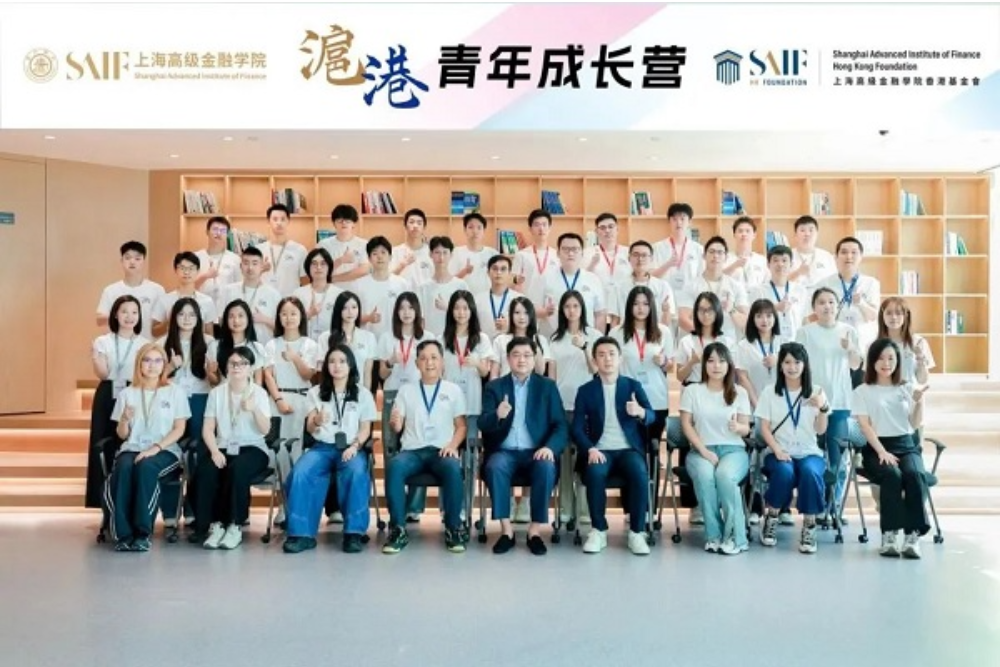
September 26, 2025
SAIF Professors Excel at 2025 EFA Annual Meeting
The 52nd Annual Meeting of the European Finance Association (EFA) took place from August 20-23 at the SKEMA Business School in Paris, showcasing exceptional research contributions from SAIF faculty members.
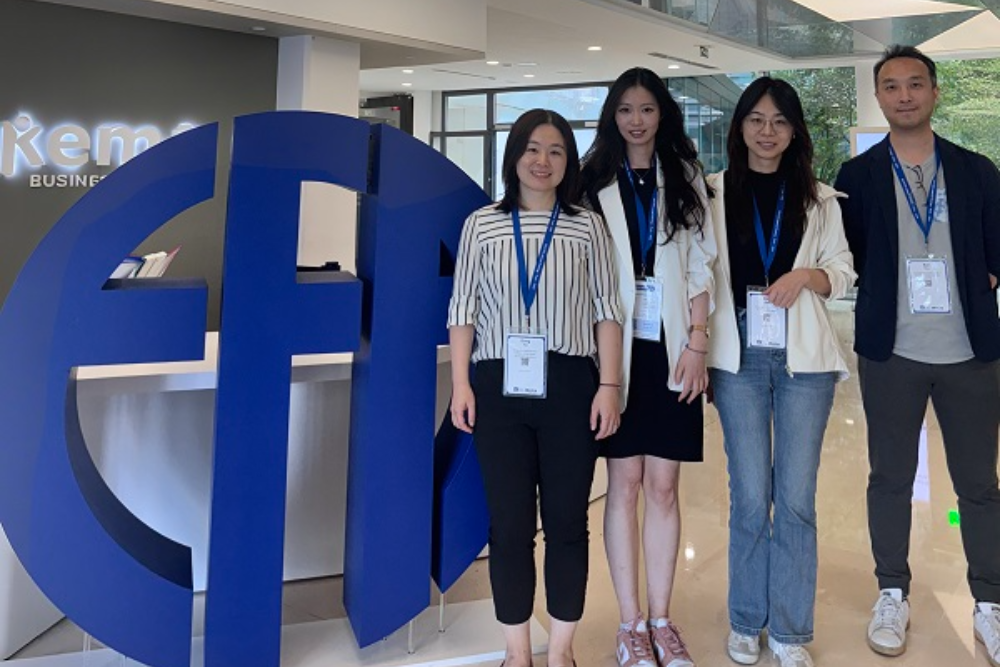
September 26, 2025
SAIF Hosts AI in Finance Insight Forum at 2025 Inclusion Conference
On September 10th, the Shanghai Advanced Institute of Finance (SAIF) at Shanghai Jiao Tong University successfully hosted the Insight Forum "AI in Finance: From Innovation to Application" at the 2025 Inclusion Conference on the Bund.
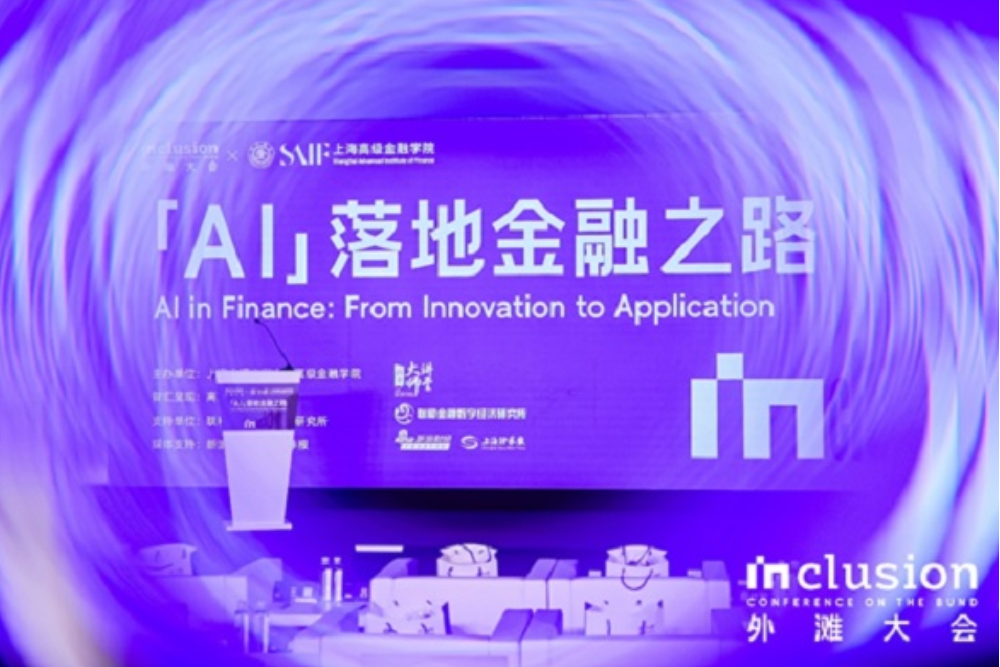

211 West Huaihai Road
Shanghai 200030, China
Tel: +86 21 6293 3500
9th Floor, Building T6, Hongqiao Hui
990 Shenchang Road
Shanghai 201106, China
3rd Floor, Building D, Chenfeng Building
800 Tongpu Road
Shanghai 200062, China
5th Floor, West Tower, World Financial Centre
1 Dong San Huan Middle Road
Chaoyang District, Beijing 100020, China
Tel: +86 10 5081 5880
1203 Tower 7, One Shenzhen Bay
Nanshan District, Shenzhen 518000, China
Tel: +86 755 8663 8815
© Shanghai Advanced Institute of Finance All Rights Reserved.


Top